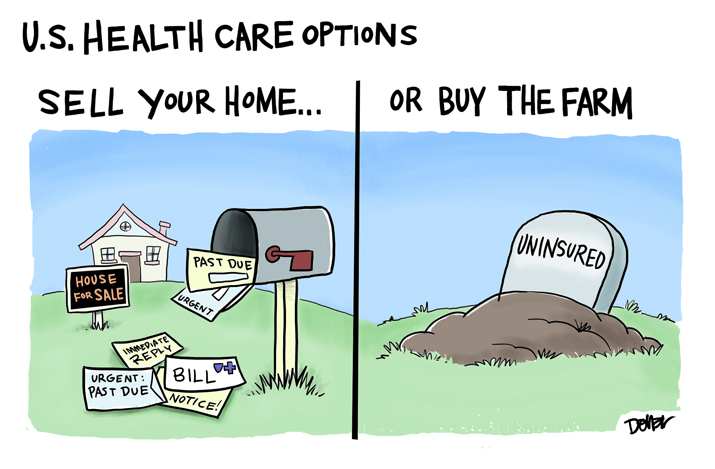
But the population on census day in 1951 (the first one since the NHS was created in 1948) was a little over 40 million. In June last year the Office for National Statistics announced the UK population had risen to almost 62 million.
And the number of patients who are clinically or morbidly obese has gone up tenfold in the last decade alone, and those suffering from alcohol and drug related problems has risen dramatically too. Granted, these are just inevitable symptoms of the nihilistic, self-indulgent age in which we live but nevertheless we must surely ask ourselves a) as the tax payers who pay for this service, are we happy to pay extra to treat these self-inflicted ailments? and b) as the patients who use this service, are we happy to wait longer to been seen by a barely conscious doctor in the 79th hour of his 80 hour working week because of these arguably avoidable afflictions?
Most of us (myself included) consider having the NHS to be a right not a privilege. But don’t all rights come with certain responsibilities?
Hmmm, a few blank faces still. Ok, consider this: Do we accept the premise that universal health care is fundamental to the way we want society to be for its least privileged members? If so, then surely we are also responsible for looking after ourselves so that we don't unnecessarily burden the system, ruining it for those who genuinely need it.
And do we also accept the basic tenet of the Nash Equilibrium that none of us are going to unilaterally decide to live more healthily to save the NHS because although we would all be better off if we all did it, if it's just us making the effort, then we get lumbered with the boring healthy lifestyle and the NHS still goes down the shitter?
It is therefore, just conceivable that we may need some kind of outside agent giving us a collective nudge in the right direction. And the government, it seems to me is the agency uniquely placed to do this. We belly-ache about the ‘nanny state’ when the government tells us to eat healthily and stop smoking or binge drinking but consider for a moment the alternative:
In America 46.3 million people (around 15.4% of the population) don’t have health insurance. As a consequence life expectancy in the US, the richest, most powerful country on earth is 78.4 years compared to 79.9 in the UK.
So at the heart of the issue is the simple matter of left vs. right. We either allow the government to have a say in how we live our lives in order to provide a health care system that allows us to live longer, or we don't; the NHS collapses under the weight of a million WKD Blue related hospital admissions every Friday night and the cost of fork-lifting thousands of housebound doughnut junkies out of first floor windows. The privateers take over allowing us to choose absolute freedom to do what we like to our own bodies. Those that can afford to can pay for the consequences do so and those that can’t (probably around 15.4% of the population or 9.5 million Britons) die prematurely.
As a left-libertarian, I hate the thought of the government interfering with something as personal as what I choose to put in my own body, but because of the implications for human life and faced with the two choices we have in society as it stands* I would rather sacrifice the libertarian bit than the leftist bit on this issue.
*There is a third option which involves a fundamental shift in the way society organises itself. A topic for another time, but rest assured one that will be covered here in some depth!
Editors note. Part 2 explaining that third option is now available to read here.

"Those that can afford to can pay for the consequences do so and those that can’t (probably around 15.4% of the population or 9.5 million Britons) die prematurely."
ReplyDeleteDefine Dying prematurely.
Americans die on average 18 months younger than Brits.
ReplyDelete